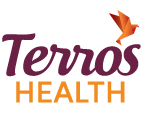Suicide Awareness
& Prevention
Suicide Awareness
and Prevention
Suicide Awareness & Prevention in the Time of COVID-19.
September is National Suicide Prevention Awareness Month—a time to share resources, information, and stories to shed light on this highly taboo and stigmatized topic.
During COVID-19, we have seen mental health issues on the rise. In June, the CDC surveyed and found that 40.9% of respondents reported at least one adverse mental or behavioral health condition, including symptoms of anxiety disorder or depressive disorder. Those reporting symptoms of trauma- and stressor-related disorder (TSRD) related to the pandemic was 26%. The survey also found that 13% of respondents had started or increased substance use to cope with stress or emotions related to COVID-19.

As a trauma-integrated health care company, we know there are risk factors
and warning signs for suicide.
We Can Help.
There are protective factors from suicide, and many involve health care providers – as knowledgeable and responsive, and connecting patients to support services:
- Strong relationships with individuals, family, and strong connections with community and social institutions.
- Problem-solving and conflict resolution skills.
- Contacts with providers (e.g., a follow-up phone call from a health care professional).
- Effective mental health care; easy access to a variety of clinical interventions.
Difficult conversations may save a life.
Every problem has a solution. Please know there is hope, and there is help. Remember, if you or someone you know is in an emergency, call 911 immediately.
If you or someone you know is in crisis or are experiencing difficult or suicidal thoughts, call Crisis Response Network
1-800-631-1314 or 602-222-9444 (Central Arizona)
1-877-756-4090 (Northern Arizona)
or contact the National Suicide Hotline at 1-800-273 TALK (8255).
If you or a family member are struggling, help is just a phone call away! Call us today,
602-685-6000 and get connected to the help you need with our telehealth or in-person counseling services!
Terros Health
27th Avenue Health Center
3864 N 27th Ave
Phoenix, AZ 85017
(602) 797-7000
Need driving directions?
Terros Health
Olive Health Center
6153 W Olive Ave
Glendale, AZ 85302
(602) 389-3560
Need driving directions?
Terros Health
McDowell Health Center
4909 E McDowell Rd
Phoenix, AZ 85008
(602) 302-7770
Need driving directions?
Terros Health
Stapley Health Center
1111 S Stapley Dr
Mesa, AZ 85204
(602) 302-7900
Need driving directions?
More Help and Resources.
- Southern Arizona Crisis Line, 1-866-495-6735
For Cochise, Graham, Greenlee, La Paz, Pima, Pinal, Santa Cruz or Yuma Counties or on the San Carlos Apache Reservation. - COVID-19 Crisis Counseling: Call 2-1-1 for free COVID-19 crisis counseling.
- Teen Lifeline, 602-248-8336 (TEEN) or 1-800-248-8336 (TEEN)
- National Suicide Prevention Lifeline, 1-800-273-8255
- The Trevor Project for LGBTQ Youth: 866-488-7386
- Trans Lifeline: 877-565-8860: Support for transgender people, by transgender people
- Suicide Resource Center (American Academy of Child & Adolescent Psychiatry)

Donate to Terros Health
Your contribution will help in transforming the health
and well-being of families throughout Arizona.
Terros health is a 501(c)(3) non-profit organization and is also a Qualifying Charitable Organization code 20295.
Every problem has a solution. Please know there is hope, and there is help. Remember, if you or someone you know is in an emergency, call 911 immediately.
If you or someone you know is in crisis or are experiencing difficult or suicidal thoughts, call Crisis Response Network
1-800-631-1314 or 602-222-9444 (Central Arizona)
1-877-756-4090 (Northern Arizona)
or contact the National Suicide Hotline at 1-800-273 TALK (8255).
If you or a family member are struggling, help is just a phone call away!
Dial, 602-685-6000 and get connected to the help you need with our telehealth or in-person counseling services!
Terros Health
27th Avenue Health Center
3864 N 27th Ave
Phoenix, AZ 85017
(602) 797-7000
Need driving directions?
Terros Health
Olive Health Center
6153 W Olive Ave
Glendale, AZ 85302
(602) 389-3560
Need driving directions?
Terros Health
McDowell Health Center
4909 E McDowell Rd
Phoenix, AZ 85008
(602) 302-7770
Need driving directions?
Terros Health
Stapley Health Center
1111 S Stapley Dr
Mesa, AZ 85204
(602) 302-7900
Need driving directions?
More Help and Resources.
- Southern Arizona Crisis Line,
1-866-495-6735
For Cochise, Graham, Greenlee, La Paz, Pima, Pinal, Santa Cruz or Yuma Counties or on the San Carlos Apache Reservation. - COVID-19 Crisis Counseling:
Call 2-1-1 for free COVID-19 crisis counseling. - Teen Lifeline,
- 602-248-8336 (TEEN)
- 1-800-248-8336 (TEEN)
- National Suicide Prevention Lifeline,
- 1-800-273-8255
- The Trevor Project for LGBTQ Youth:
- 866-488-7386
- Trans Lifeline:
- 877-565-8860:
- Support for transgender people, by transgender people
- Suicide Resource Center
- (American Academy of Child & Adolescent Psychiatry)
Donate to Terros Health
Your contribution will help in transforming the health and well-being of families throughout Arizona.
Terros health is a 501(c)(3)
non-profit organization and is also a Qualifying Charitable Organization
code 20295